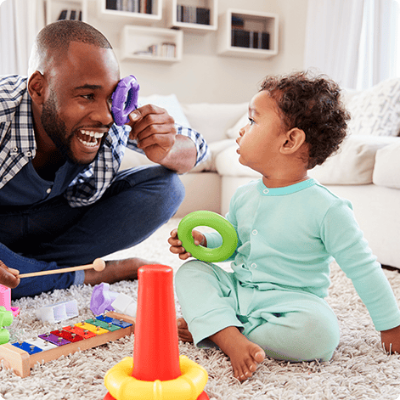How to Talk to Your Kids about Divorce

Although divorce is hard on every family member, kids often carry the heaviest load and need to most time to come to grips with what is happening. While there is likely nothing you can do to make things seem totally okay or normal during a divorce, there are strategies you can use when explaining the situation to your children to make the divorce process feel less daunting and traumatic.
Every family is different, as is every child, so there is no "right way" to talk to your children about your divorce. That said, we offer these suggestions for when you approach the subject.
Keep it simple and factual
Whether your child is a toddler or a high schooler, keep your communication simple and straightforward. The kids don't need to be dragged through the mudslide of details that led your relationship to this point. Give them the information they need to know that's relevant to them; don't regale the entire backstory of how your marriage deteriorated over time. Doing so could make them feel as if they played a role in their parents' split when, in reality, this is between you and your spouse.
Do not appear to place blame on the other parent or criticize them. Even if it's not your intention, this can make the child feel they must choose sides. Remember, your kids are "one-half" your ex. If you make them feel like something is wrong with their other parent, they can internalize it and believe something is wrong with them.
Unify your approach
If possible and practical (which often, it may not be), discuss your divorce with your spouse physically in the room. This presents a unified front and shows the kids that, although things are changing, you are both still their parents. The two of you can still make and follow through on parental decisions. It's important to act and present yourselves like the responsible, capable adults that you were before the split. This reaffirms to your children that their reality hasn't turned upside down. Remind them you love and adore them, and you don't expect them to compartmentalize their lives. Yes, they might now have two homes, but they still have just one life. Encourage them to celebrate BOTH parents without fear that the other might suffer hurt feelings or resentment.
Related: Create Your Own Co-Parenting Plan
Encourage your kids to share their feelings.
While you are the one bringing new and consequential information to the table, you shouldn't be doing all of the talking. Your children may have questions as well as initial reactions. Listen to them. Reassure them that it's okay to feel the way they do. Support them, and let them know you will get through this together.
Check in with the kids periodically to see how they're doing and if they have any questions. For young children, we often suggest that you include them in setting up their new room or home, making it exciting as opposed to upsetting. (That said, they still might be sad, and sad is OK. It's just one step in a journey that will make them more resilient and more bonded to you.)
Avoid letting your emotions drive the conversation.
Your children will look to you for cues about how to react to the situation. If they see you getting emotional, it may worsen things for them or even frighten them. Avoid exacerbating what is already a hard situation. Do your best to remain calm and reassuring when explaining the divorce.
Although a lot will be changing, you are both still their parents. You both still love them, and that will never change. Make sure they know that.
Do not involve the kids any more than necessary in the divorce. This can be a scary time for children. It can feel like the world they knew is gone for good. Reassure them that this is not the case ... that in the end, things will be alright.

Ready to re-discover yourself with coaching or therapy?
Our FREE checklist can help you find the right fit.
Download our checklist of questions to ask a potential therapist or coach today.



